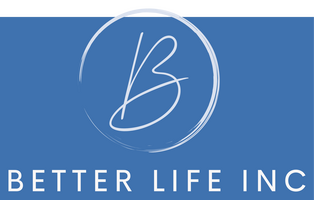Hello growth seeker! We were either taught boundaries or we weren’t during our childhood, and if we weren’t, it is up to us to learn effective and resilient ways to do so. In a nutshell, we teach people how to treat us. If we find a situation intolerable or unacceptable, it is up to us to create a health boundary.
A boundary is not dictating what another person can say or do. A boundary is not about controlling someone else. A boundary is our deciding how we are going to respond to a person or situation, and most importantly, the only person who can really violate our boundaries is us by not maintaining the boundary that we have set.
If you find something has happened to you, that has made you uncomfortable, this is yours to resolve by healing a wound that has triggered your response and also setting a boundary with someone else.
So, get comfortable now and we will walk through learning to:
- identify what you want and don’t want
- take charge of your life
- prioritize self-care
- step into your full power by learning to establish boundaries that serve you
Let’s dive into this transformational topic together!
The Power of Boundaries
Let’s start by acknowledging and understanding the incredible power that boundaries hold. Boundaries are not walls; they’re bridges to self-respect, self-worth, and personal growth. Boundaries are not telling others what they can and cannot do; they’re healthy responses that reflect our responses to others and communicate what we intend to do about a situation. When you establish healthy boundaries, you create space for authenticity, self-love, and fulfilling relationships.
Our overall goal is to remain our true and authentic Self. At our core we are compassionate, curious, creative, calm, confident and brave individuals who strive to have clarity in our lives as well as a connectedness with others. Feeling anything outside of this space means that you, my friend, might be in a wound. I often tell my clients that we really shouldn’t bleed all over people who didn’t cut us. There is an old Latin proverb that translates like this: Sometimes people throw salt on us but it is only going to hurt if we have an open wound. Our responses are meant to protect us if we have had a previous hurt, and our goal is to heal and to be our best Self. At no time can we lash out at others and then later feel guilty or otherwise poorly about our responses because we know that to do so is not out best Self.
Who Are You and What Do You Need?
Setting boundaries means getting clear on who we are and what we need. Take time now to identify a recent time when someone behaved a certain way towards you, or talked to you a certain way, and you felt uncomfortable. What did you want or need in that moment? An example might be that you were having a conversation, and someone raised their voice at you. What you might have needed instead was to be spoken to calmly and respectfully. Next take a moment to identify a situation you said “yes” to when you really wanted to say “no”. Remember, “no” is a complete sentence. Every time you say “no” to something that doesn’t align with your values and priorities, you’re saying yes to yourself and your own well-being. Do you find yourself agreeing to things that you truly do not want to agree to? An example might be that you did not want to go somewhere, but agreed to go because you were worried about the other person’s feelings. Situations like this can leave you feeling bitter or resentful, but it was your own choice, your own decision, and your own boundary with your time that you violated.
Self-Care is Non-Negotiable and is Your Responsibility
Self-care is the cornerstone of effective boundary setting. When you prioritize self-care, you’re better equipped to recognize when your boundaries are being pushed. You have the strength to protect them! This might mean learning to better trust yourself. Your inner wisdom knows what’s best for you and you might need to learn to trust your intuition when it comes to setting boundaries. By tuning in, going inside yourself by focusing internally, you can learn to trust yourself to make choices that align with your authentic Self. Also know that you have a right to change your mind and exercise flexibility. Sometimes what seems like a “deal breaker” that we have initially identified as a crisis but after more contemplation and consideration we realize it was just an incident and not a crisis after all. By listening to your inner voice, you can determine if the situation makes you uncomfortable enough to maintain a boundary or to exercise an alternative that offers more flexibility.
We build trust in ourselves, and build our resilience, by showing up for ourselves. If you have a workout partner and commit to meet them at the gym, you would do so to honor your commitment to your friend. Likewise, if we make a commitment to ourselves, we need to show up for ourselves with the same respect. Sometimes we need to do something while afraid or anxious in order to get through it so that we can look back and see that we actually could do what we were afraid of doing. This is how we build resilience. And each time we show up for ourselves, we learn we can trust ourselves, which then extends to us learning to better trust others as well.
Boundaries in Relationships
Boundaries are especially vital in relationships. Whether it’s with family, friends, or romantic partners, setting clear boundaries helps establish healthy dynamics. Don’t be afraid to communicate your boundaries and to honor them. By maintaining your boundaries, you can send a clear message about what is and is not acceptable to you.
Boundaries at Work or Other Social Situations
Your professional life deserves boundaries too! It’s essential to strike a balance between your work and personal life, ensuring that you have time for self-care, hobbies, and relaxation. If your workload becomes overwhelming, don’t hesitate to negotiate for what you need by talking to your supervisor to identify what you can reasonably do and not do, and ask for help with time management and prioritizing your responsibilities.
Enforce Boundaries with Compassion and Empathy
Setting boundaries is not about being rigid or confrontational. It’s about asserting your needs with compassion and respect for yourself and others. Boundaries can actually enhance your relationships by promoting open communication and understanding. Meeting others with compassion and empathy allows you to be your best Self. Being your best authentic Self means you are functioning outside your own wounds and triggers and allows you to respond with healthy emotional regulation skills and abilities.
Let Go of Guilt
Guilt often creeps in when you set boundaries, especially if you’re used to people-pleasing and putting other’s feelings and needs before your own. Saying no to something is an act of self-love not selfishness. Let go of guilt and embrace the freedom boundaries offer! Setting a boundary is not disrespectful of someone else and you are not responsible for other’s feelings, because after all, you can only control yourself.
The Ripple Effect of Boundaries
As you set and enforce boundaries in your life, you’ll notice a ripple effect, like dropping a stone in the middle of a pond. Your relationships will become more authentic, your self-worth will soar, and you’ll have the space and energy to pursue your dreams and passions. Many times as we change, others around us change as well. When we remove ourselves as opponents, the other person no longer has us to point at or blame causing the other person to be put in a position of accountability and responsibility for their own actions. Taking ownership of your role in a situation offers you the opportunity for growth and furthers your well-being.
The Behavior Not the Worth of the Person
Boundaries are about the actions of others and not about the value of the other person, or an effort to degrade their worth. It’s crucial to grasp that boundaries are fundamentally about managing behavior and interactions, not passing judgment on individuals. One common misunderstanding about boundaries is attributing them directly to an individual’s character or worth. In reality, boundaries are not a commentary on another person’s value but rather guidelines for behavior and mutual respect to facilitate and maintain healthy relationships. Boundaries address our own self-care, needs, and well-being which then get prioritized, otherwise we are people-pleasing or putting someone’s feelings and needs before our own. So many times, relationships needlessly become estranged when two competent adults need only have created and maintained their respective boundaries. In our humanness, we need connection with others, especially those we love, and we punish ourselves and another person for our own failure to communicate our needs effectively.
Maintaining Your Boundaries
Remember that it is important that you maintain your ability to emotionally regulate. Your goal is to get your needs met and to maintain your healthy communication skills. Being blaming, argumentative, or reacting instead of responding will not get your needs met and on top of that cause you to feel poorly about your own words and actions. Lack of emotional regulation will cause the message that is important to you to be lost because the listener will be distracted by how you are choosing to relay your message.
Be sure to enforce your boundaries consistently. An expectation is a premeditated resentment and if you are expecting someone else to respect your boundaries when you aren’t respecting them yourself, this is going to cause you to feel bitter and resentful. By maintaining your boundaries, you are focused on you and your needs and feelings, and not someone else. This is empowering and affirms that you and your feelings are important and have value!
Conclusion
In the book Courage to Change (Al-anon), on November 5, the reading reminds me that if I speak the way I feel then my focus is on me. If I speak about another, my intention is to change what they are doing, and my focus is then on their reaction. I then use their reaction as a measure to determine the results of what I said about them. Did what I say cause them to change their mind, their behavior, their responses…and with that question the focus is again, not on me. By focusing on someone else I hand over ownership and my sense of Self – if I am focused on Self I can control it, but if I put my worth – the worth of my opinion, beliefs, my perceived rights and wrongs, I hand over my self-worth because I look to their agreement with me. There are things I know and there are times I form a belief, opinion, or judgment to measure how I feel about myself when truly if I simply identify and state my feelings, I can develop self-worth internally.
It’s time to take control of your life, nurture your well-being, get your needs met, and create a space for your true and authentic Self to shine. I encourage you to embrace this practice with an open heart and an unwavering commitment to your own happiness since happiness is an inside job. Looking for external validation is placing the responsibility for your happiness on someone else. You my friend are more powerful than you can imagine! Remember that you deserve all the love, respect, and joy that life has to offer.
Go forth and set those boundaries!
Check out additional self-preservation tools:
12 Weeks of Creating the Life You Want | Better Life Inc
Twenty-One Days of Writing to Discovery Your Authentic Self | Better Life Inc
May your positive habits lead you to a life of fulfilling growth and joy,

